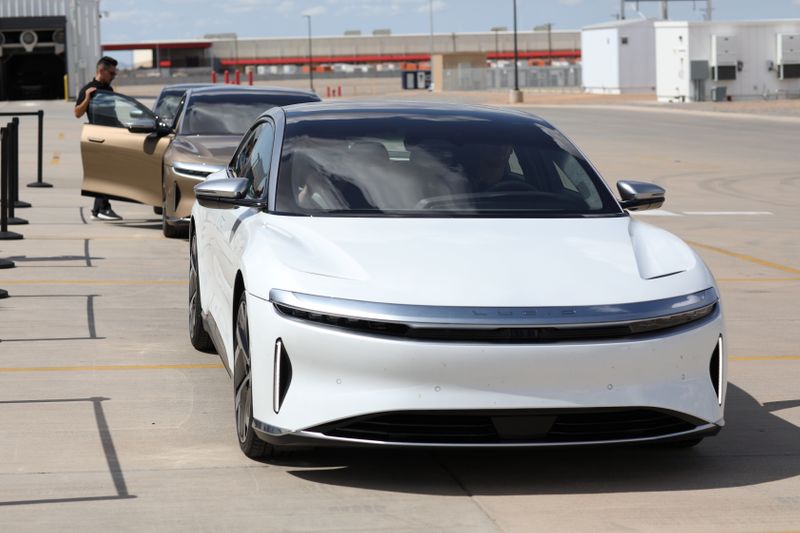Investing.com — Shares in Lucid Group (NASDAQ:) fell starkly after the electric vehicle (EV) maker warned it expects to report a larger-than-anticipated loss for the third quarter and announced a public offering of more than 262 million shares.
The news sent Lucid stock tumbling more than 14% in premarket trading Thursday.
Moreover, Saudi Arabia’s Public Investment Fund (PIF), Lucid’s largest shareholder, revealed plans to purchase 374.7 million shares, aiming to maintain its nearly 59% ownership stake in the company.
Lucid intends to use the funds raised from the share offering, along with the private placement from PIF, to support capital expenditures and other financial needs.
Back in August, PIF announced it would inject up to $1.5 billion in cash through its affiliate, Ayar Third Investment, as Lucid prepares to scale up production of a new SUV.
Lucid forecasts a loss from operations between $765 million and $790 million for the quarter ending Sept. 30, exceeding analysts’ expectations of a $751.65 million loss, based on LSEG data.
The company is set to release its third-quarter earnings on Nov. 7.
Commenting on the capital raise, Morgan Stanley analysts said it is “slightly larger and earlier than we had expected.”
The Wall Street firm had forecast $1.6 billion of gross proceeds from capital raises in fiscal years 2025 and 2026 combined.
“We estimate this capital raise is roughly equivalent to our projected forward cash burn for 4Q24 and all of FY25 and is meant to provide a bridge through the Gravity SOP/ramp (SOP year-end) and through the development of the midsize model (estimated SOP late 2026),” analysts said in a note.
Lucid estimates its Q3 revenues to be approximately $199.5 million at the midpoint, reflecting an average selling price of $71,700. According to Morgan Stanley analysts, this represents a 14% decrease compared to the previous quarter and a 24% decline year over year.
Demand for EVs in the U.S. has been softening, driven by high interest rates and the growing availability of more affordable hybrid options.
EV makers like Tesla (NASDAQ:), Rivian (NASDAQ:), and Lucid have responded by cutting prices and offering incentives, including lower-cost financing, to attract buyers.


